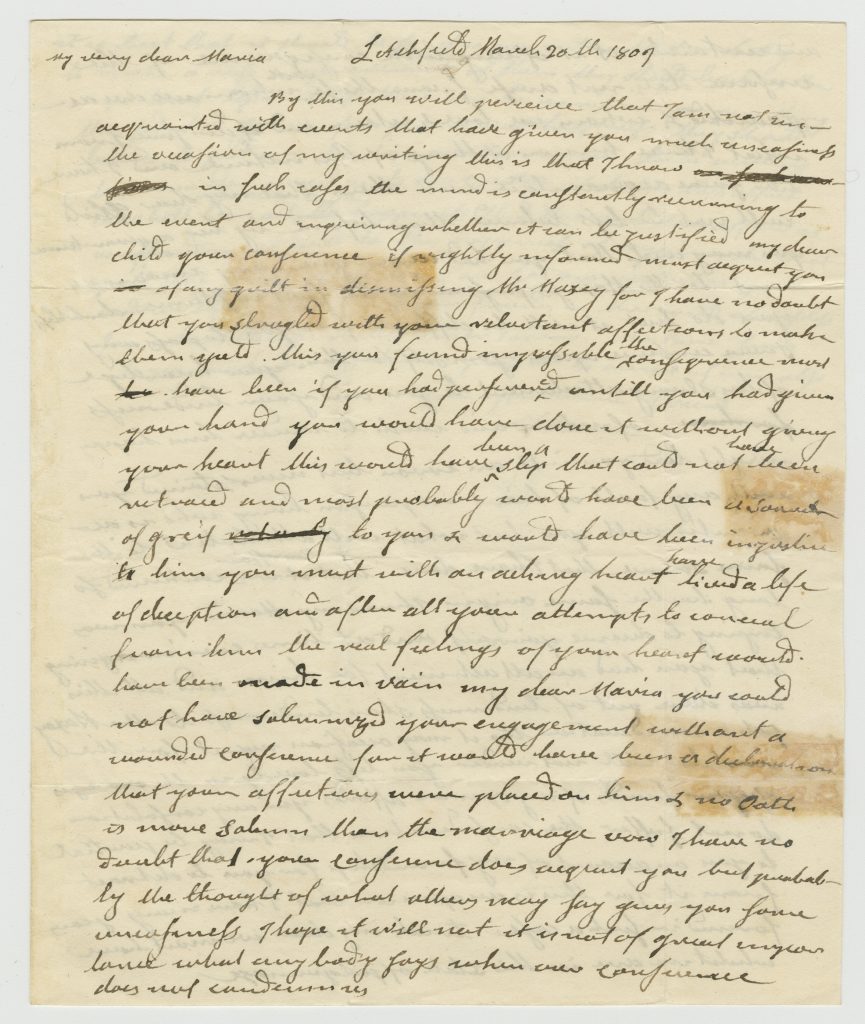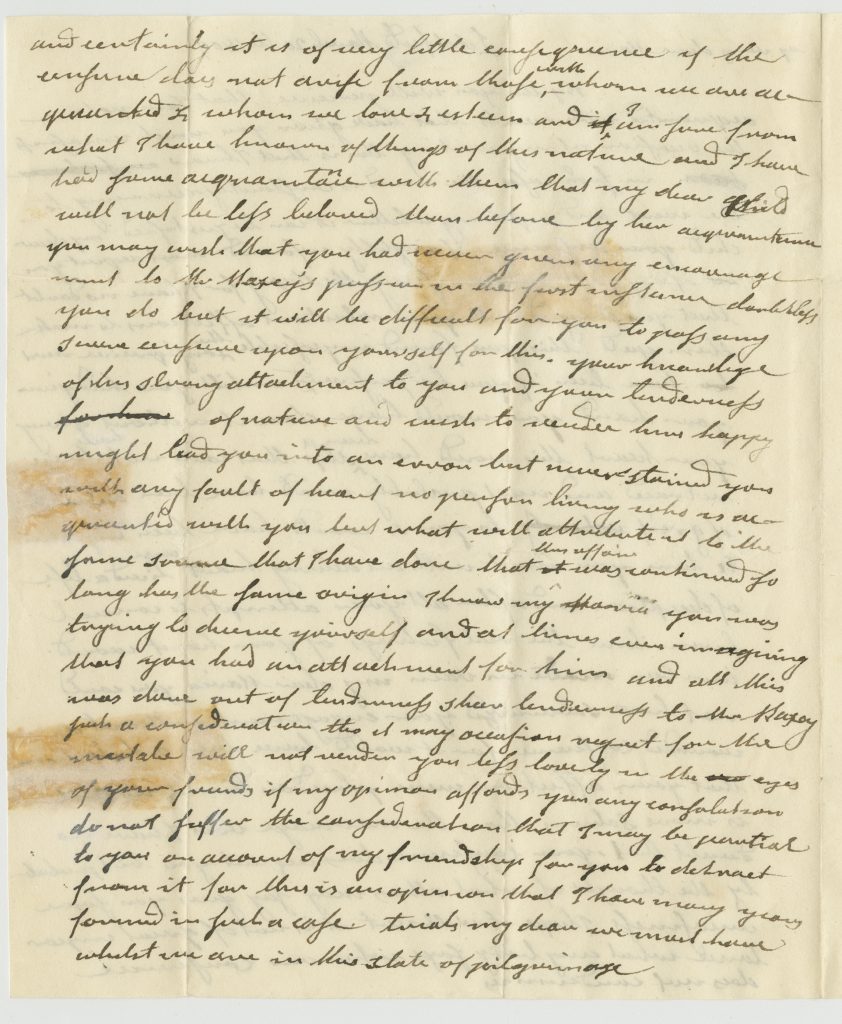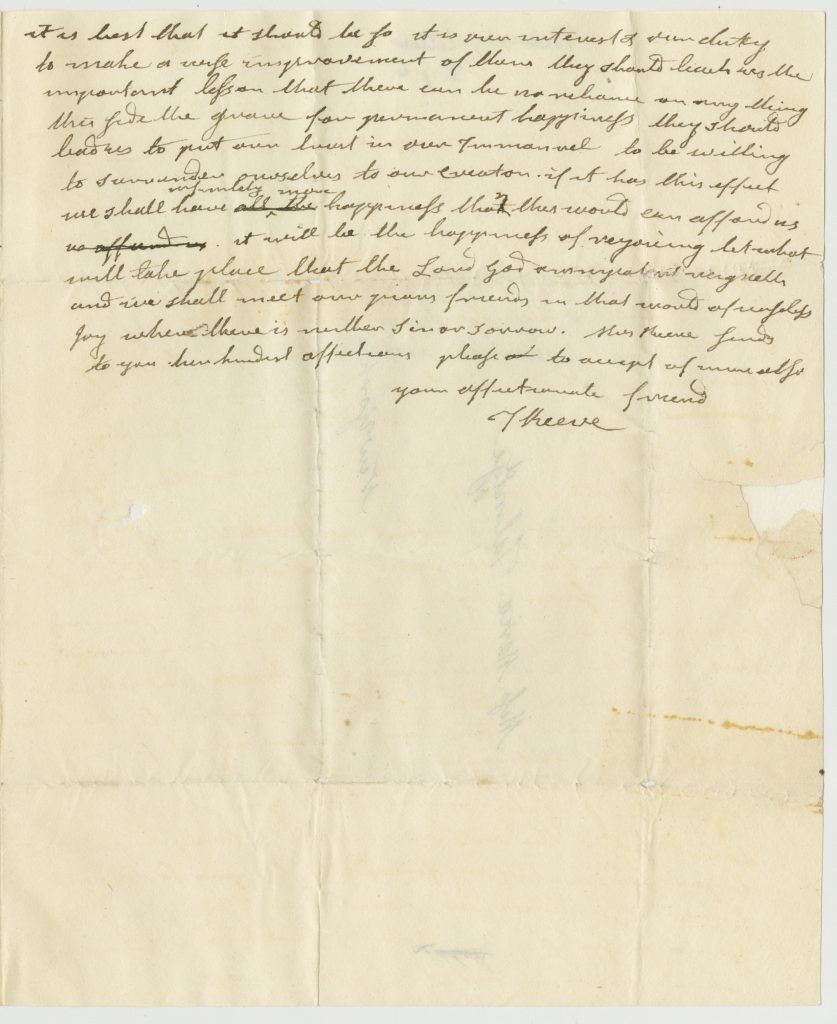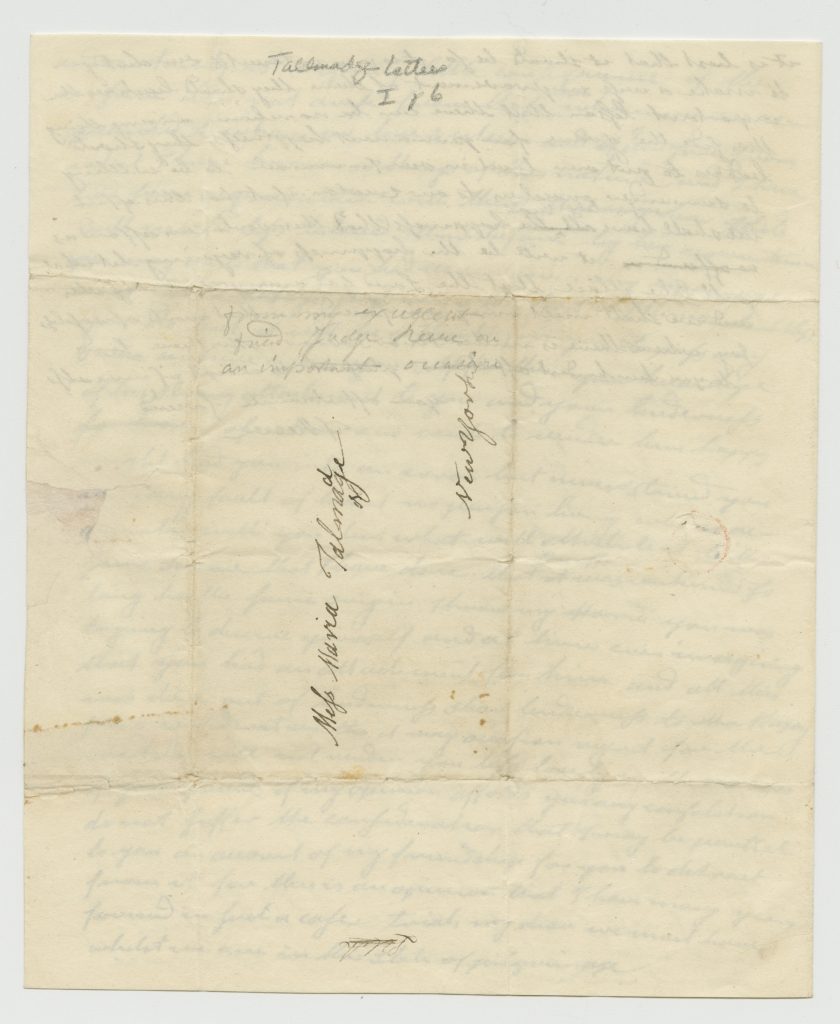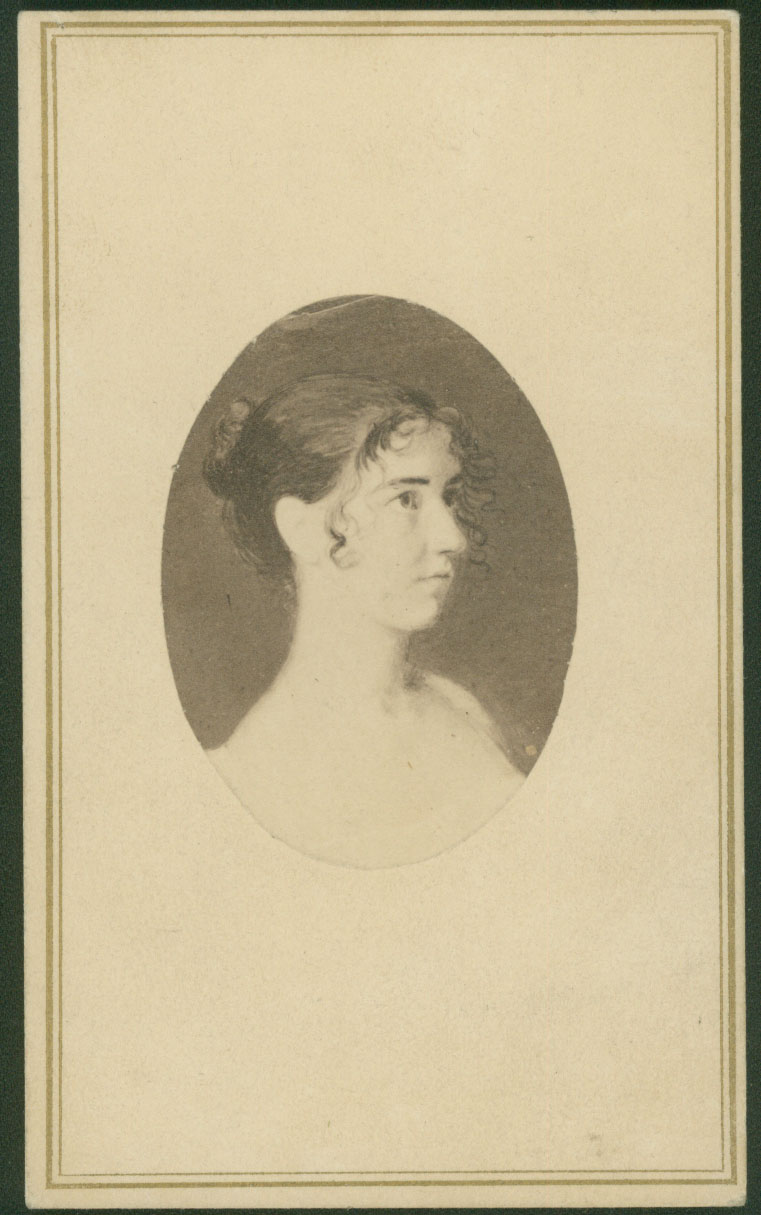Post by C.C. Borzilleri, Intern
Students arrived to Sarah Pierce’s Litchfield Female Academy for a variety of reasons, ranging from hoping for a future of teaching to the pursuit of knowledge for its own sake. Throughout the forty-one year history of the Academy from 1792-1833 students were all held to consistently high standards of conduct and performance regardless of their motivation for attending the school
A student at the Litchfield Female Academy from 1801-1803, Litchfield local Lucy Sheldon was a model of success at the Academy, thriving on the regimented schedule and exceeding the lofty expectations of her superiors. Her diary reveals the thoughts of a young woman striving for nothing short of perfection in both her studies and her development as a young woman of society. Her good fortune to be a Litchfield resident provided her with a lifetime of exposure to two of the most prominent educational institutions of the era—The Litchfield Female Academy and the Litchfield Law School—as well as a position in the high society of Litchfield which often served as a gateway for residents, especially male law graduates, to make their way to national notoriety through strong connections to the powerful elite in Washington, DC, many of whom were also fellow Litchfield Law School alums.

Portrait of Lucy Sheldon Beach
Lucy was born in 1788, making her a young 13 year old when starting her studies at the Female Academy in 1801. As a Litchfield local, she lived in her own home with her family rather than boarding in another private home like many of her fellow students. Throughout her diary, Lucy references not only her dedication to studying, but her supportive role in the management of her family’s household. A particularly telling passage comes from New Years Day of 1802: “Friday. This is the first day of January the beginning of the year 1802, and I intend if it is in my power, to conquer all my faults, but as perfection is not the lot, of mortals I shall not expect to attain so near to it, In the forenoon painted in the afternoon there was not any school and I remained at home, assisted Mama & sewed.”
Her desire to thrive within all aspects of her life is clear through her writing, often providing positive feedback to the lessons heard from her teachers and the sermons heard at weekly attended meetings of the Church, which were only ever missed in extreme cases of bad weather or ill health.
Lucy was a competitive girl, likely motivated by the various prizes and awards of recognition that Miss Pierce made available to her best students. Weekly recitations of lessons were the platform from which Lucy and other stellar students could prove themselves to be well-versed in their work—and Lucy took the high stakes of performance to heart. “Wednesday. Studied a geography lesson and recited it. Had the mortification to have Miss Mary Ghen get above me, began to draw a map, in the afternoon.” This incident is followed by an increased emphasis, in her written diary at least, on the careful study of geography: most every day featuring either “drew on my map,” “studied a geography lesson,” or both for the next several weeks.

Painting by Lucy as a student at the Academy titled, “The Sailor”
After her schooling was complete, Lucy Sheldon remained in Litchfield, living in her family home on North Street until her death on April 7, 1889 at 100 years of age. Lucy married physician Theron Beach, and though the couple had no surviving children of their own, Theron’s daughter Hannah Beach upheld Lucy’s legacy of dedication to studies through her time as a student of the Litchfield Female Academy from 1827-1830 and in 1832. Hannah Beach later married Edgar Simeon Van Winkle, a lawyer who had studied and trained under Litchfield Law School graduate John P Jackson.
Lucy Sheldon Beach’s life in Litchfield during the turn of the 19th century was highly characteristic of women in Litchfield of that era: her motivation toward greatness and dedication to her family made her a great success story of the sort that Miss Pierce hoped to see come from her Academy.
Complete biographies of the individuals mentioned can be found in the Litchfield Historical Society’s Ledger, and more information, associated objects, and the complete diary of Lucy Sheldon can be found through Archon and in the Helga J. Ingraham Memorial Library.
![1847 Litchfield CT stampless folded letter red CDS and 5 rate [H.3508] - Picture 1 of 3](https://i.ebayimg.com/images/g/DHIAAOSwSGJk7~gL/s-l1600.jpg)
